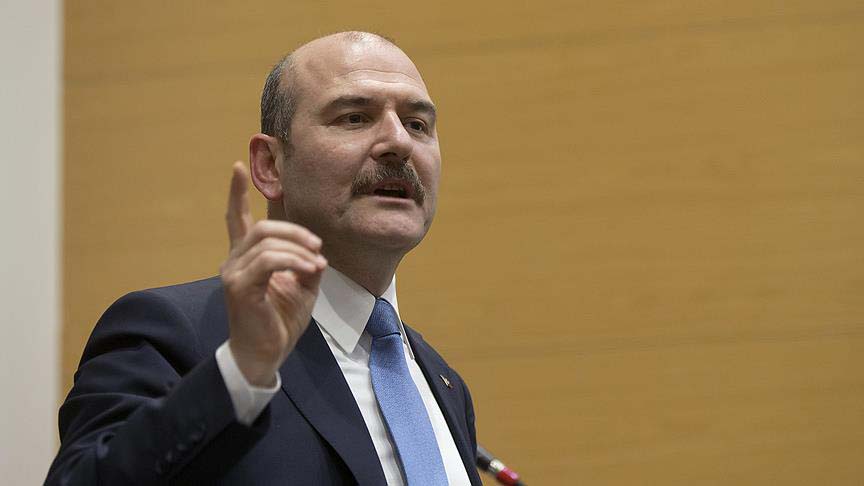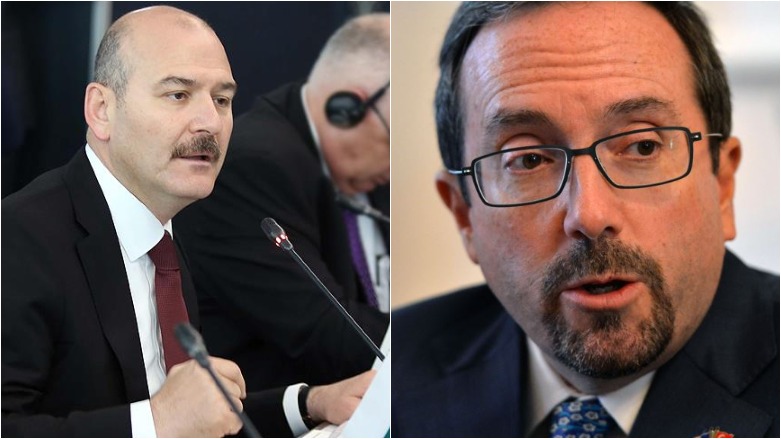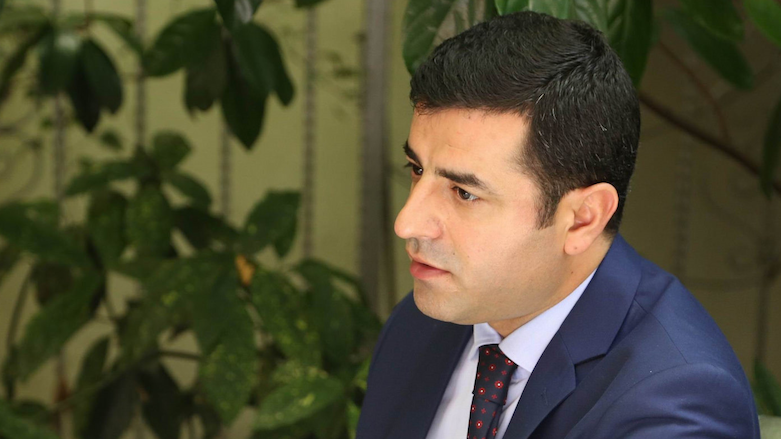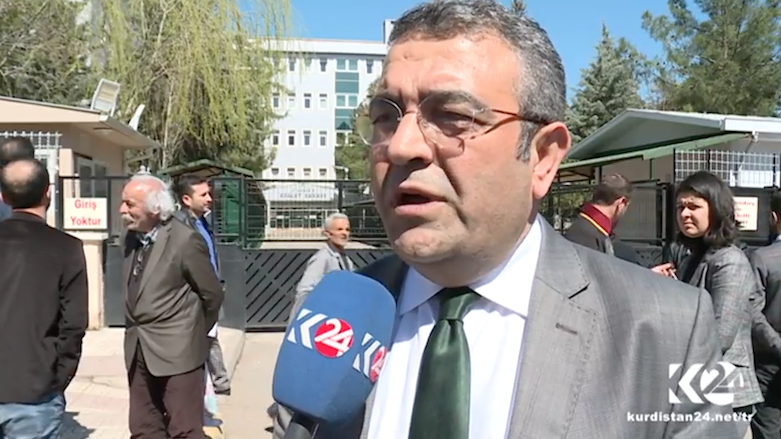Turkish minister labels academic 'hireling' for article on policies against Kurds

ERBIL, Kurdistan Region (Kurdistan24) - Turkey's Interior Minister Suleyman Soylu on Saturday slammed one of the country's most prominent academics, Baskin Oran, as "a hireling" over a critical article the latter recently penned on the government's crackdown on Kurds and related rights violations by authorities.
"I, hereby, file a criminal complaint against the hireling Baskin Oran who sells himself as a man of knowledge but has villainously fictionalized every word of his article," tweeted Minister Soylu, inferring Oran may be on the payroll of a foreign government.
It was not immediately clear if the minister had already filed a lawsuit against the academic who happens to be an expert on Turkey's international treaties.
Oran served as an advisor to the government of then Prime Minister Recep Tayyip Erdogan as a member of 'the Committee of Wise Men' during the 2013-2015 Turkey-Kurdistan Workers' Party (PKK) peace talks.

Soylu became the Interior Minister in August 2016 and is known for his hawkish stance on the outlawed PKK and the second largest opposition block, the pro-Kurdish Peoples' Democratic Party (HDP).
He came out in defense of Turkish troops who tortured an elderly man in a village under military curfew in the Kurdish province of Mardin in February. The move subsequently drew condemnation by the HDP and Republican People's Party (CHP).
Oran titled his Friday article, published by the independent news website T24, "On some tragicomic experimentations on Kurds," in which he reminded readers of dozens of instances where authorities participated in the violation of rights.
"Before I begin, let me warn you that I will not speak of the closure of Kurdish newspapers, magazines, institutes, the government seizure of Kurdish municipalities, appointment of subgovernors as mayors, arrests of political co-leaders, detention of HDP lawmakers and their being transported from one jail to another," Oran said.
"I will also skip POH [police special forces], and JOH [gendarmerie special forces] practices in basements in [the Kurdish cities] of Cizre, Sirnak, and Lice. I will skip, for they are not tragicomic. They are only tragic," Oran added.
Instead, he focused on various reports since last year's clampdown by officials on the Kurdish language, culture, and symbols.
Among the examples of "tragicomic experimentation" Oran counted was the August 2016 police beating and subsequent arrest of several youths singing in Kurdish at a public park in Istanbul.
Oran mentioned a case from last February when a school teacher in the city of Aydin reported six of his students to police for listening to Kurdish music, leading to their interrogation by police on the grounds of "disseminating terrorist propaganda."
He also pointed out how central government-appointed trustees to township municipalities which are allied with the HDP, have taken down signboards in Kurdish and Armenian since the seizure of local administrations in the Kurdish region.
Oran criticized state officials who, in March, gave orders to the Dersim Municipality not to provide funerary services for a slain PKK fighter, including the washing of his body.
The Justice and Development Party-held (AKP) Municipality of the town of Battalgazi in Malatya also prohibited the funeral procession for Kemal Korkut, a university student shot dead by Turkish security forces during the Newroz festival in Diyarbakir.

He then referred to the authorities' banning of a Kurdish song produced by the HDP for the 'no' campaign in the run-up to the April referendum which granted President Erdogan sweeping executive powers.
In April, authorities in Diyarbakir removed red and yellow tulips planted on green grass in a median strip in one of the city's famous boulevards, because they "evoked colors found on the Kurdistan flag," Oran added.
He further exemplified his point using a widely-circulated report released in May in which it was documented that Turkish police arrested two young men in the city of Adana for waving a cloth with the Kurdish national colors in a wedding convoy.
He included the decision by another government trustee in the Van Province to rename a public park previously named after the slain Kurdish human rights lawyer Tahir Elci.
Trustees separately demolished several statues in Kurdish towns, among one commemorating a 12-year-old child, Ugur Kaymaz, killed by police in 2004 in Mardin's Kiziltepe district and another, a monument in honor of the late Kurdish politician Orhan Dogan in Sirnak's Cizre.
In Diyarbakir, the governor ordered in February the dismantlement of a memorial in remembrance of 34 civilian victims of a massacre committed by Turkish air force in 2011 on the border with the Kurdistan Region.
Oran, specialized in the 1923 Treaty of Lausanne, often referred to as a founding document for the Turkish Republic, argued Kurdish prisoners should be able to defend themselves in their mother tongue.
He said a recent decision by the judiciary to bill scores of political prisoners up to 60 thousand Turkish liras (17.000 USD) for translation services from Kurdish to Turkish in courtrooms was "in contravention of the Article 39/5 of the Lausanne."
Editing by G.H. Renaud



